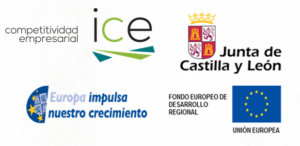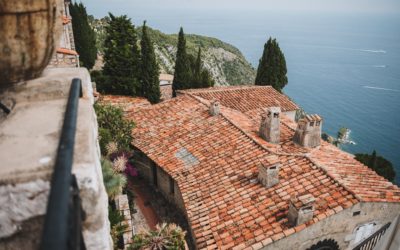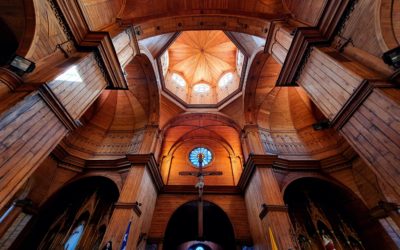CARTIF PROJECTS
SRURAL
Disruptive technology applied to the digital transformation of natural spaces in Castilla y León
Description
SRURAL aims to investigate and advance in recognized disruptive technologies (cognitive computing, edge computing and dynamic geo-information), in addition to demonstrate their application in our natural spaces and their extensive cultural heritage (cultural landscapes as a whole), in such a way that causes a real transformation of the territory providing practical ways of proceeding with management, use and exploitation, generating new services, products or processes to consequently dynamise the digitization of key sectors for Castilla y León (Spain)
Objectives
- Increase the processing capacity of smart information managing systems on cultural landscapes by incorporating computer-based techniques to analyse large amounts of heterogeneous information.
- Incorporate affective information extracted from human behaviour in the decision-making process.
- Automate the incorporation of information to geographic information systems.
- Decentralize information processing to reduce dependence on access to communication networks in rural areas and avoid saturation.
Actions
- Deploy techniques for inventorying, monitoring and protecting cultural heritage: automate the mangement of the cultural landscape, collecting data on related elements, assesing its state and safeguarding it from intrinsic risks and human hazards.
- Deploy technologies for automatic mapping: extraction of geo-located dynamic information, assisted by skilled personnel for proper exploitation.
- Deploy accurate forestry techniques: applications for sowing, fertilizing, irrigating fertilizing and harvesting depending on each geo-location.
Expected Results
- SRURAL aims to offer solutions based on cognitive computing technologies, edge computing and dynamic geo-information, as well as their improvement and adaptation through specific developments, to meet the social and territorial needs detected in the cultural landscapes of Castilla y Léon (Spain).
Partners
R&D projects in collaboration with CCTT and companies
CCTT4/20/VA/0004

Total Budget CARTIF: 939,442.31€
Grant CARTIF: 873,681.26 €
Duration: August 2020- December 2022

Responsible

Pedro Martín Lerones
Head of Cultural & Natural Heritage Area
Networking
Cultural Heritage projects:
iPhotoCult
iPhotoCult has as objective to design, develop and validate innovative and sustainable photonic solutions for the preservation of Cultural Heritage. These solutions, applicable on remote or in situ, include advance diagosis tools and a platform of services on the cloud that allos the precise monitorization of buildings, monuments and artefacts
RURBANIVE
RURBANIVE will establish a novel rural/urban innovation framework, supported by technical and social innovations to enhance territorial governance and existing policy tools.
RURACTIVE
RURACTIVE encourage a just and sustainable transition of rural areas through intelligent solutions, lead by the community, tailor-made, based on the local and inclusive inside the multi-stakeholder rural innovation ecosystems at 12 pilot areas (Dynamos, Ds).
TExTOUR
TExTOUR mobilizes 18 partners, represented in the quintuple social innovation helix (knowledge, business, society, government and entrepeneurs) to co-design, validate and upscale to various levels, policies and strategies with positive impact on the socio-economic territorial development based on cultural tourism.
RURITAGE
RURITAGE enables rural regeneration through cultural and natural heritage (CNH). Has selected 13 rural areas as Role Models, i.e. successful cases regenerated thanks to CNH in 6 Systematic Innovation Areas.
ITEHIS
Inovative and digital technologies to proceed to the technical inspection of historical buildings for public or private use. The methodology proposed is based on the HBIM (Heritage BIM) paradigm
INSITER
INSITER eliminate the gaps in quality and energy-performance between design and realization of energy-efficient buildings based on prefabricated components.
SHCITY
SHCITY addresses the innovative challenge of creating a unique tool to manage historic urban centers and facilitate the work of the competent authorities in decision making. SHCITY will integrate data collected by sensor networks with artificial vision and 3D scanning technologies deployed in the urban area (Ávila), in order to respond to conservation, security, energy efficiency and tourism needs.
RENERPATH-2
The goal of the project called “Energy Refurbishment Methodology for Heritage Buildings” (RENERPATH-2) is to establish a specific European pre-normative, focused on the energy refurbishment of heritage buildings, whether public or private use, in parallel with the newly constructed buildings law.
INFIT
In INFIT, automatic data capture systems have been developed to obtain an accurate and objective image of the tunnel surface.
SITEER
Currently, inspections of road and rail tunnels are carried out manually. CARTIF and Geocisa have studied how to implement technologies that allow inspecting automatically tunnels to achieve its preventive maintenance, developing a system which is able to organize the collected data.
PAVIREX
The PAVIREX project, “New safer pavements in extreme temperature conditions”, was co-financed by the Ministry of Science and Innovation and FEDER Funds, through the INNPACTO 2011 call. The consortium of the project is formed by CARTIF, Grupo Campezo, Euroestudios , Proas (Cepsa), Eiffage, the University of Oviedo and the University of the Basque Country.
RENERPATH
This project, which was developed between 2011 and 2013, established an energy rehabilitation methodology based on novel and non-intrusive techniques for the energy analysis applicable to public and private heritage buildings.

















